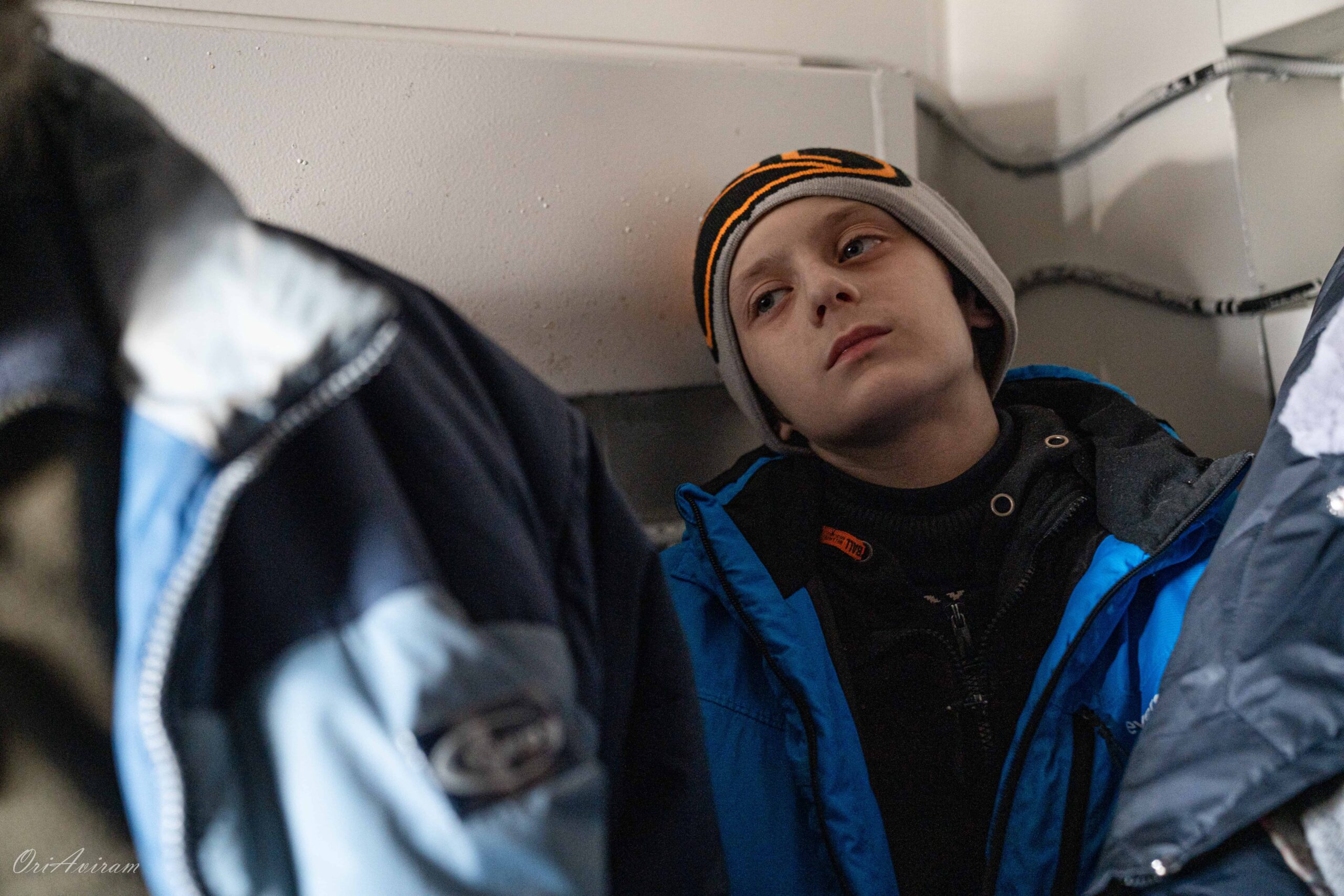
Artillery every day. Daily sounds of Mortars. Soldiers everywhere. Machine guns. Grenades.
In eastern Bakhmut, on the other side of the river, the fighting rages harder than elsewhere in the city. Gray zone – mortal danger. On the outskirts of the city is the direct front line, behind it: territory taken by Russian troops. The local people experience the horror of war here every single day.
Only a few volunteers still manage to cross the river. There is one bridge left. The road is full of mud, with a large car the bridge is no longer passable. Only a four-wheel drive still manages this hurdle.
No internet, no telephone reception. For many of the remaining inhabitants who want to flee, the only option is often to cross the bridge on foot. But this is extremely dangerous.
Mark has taken this path. He, his mother and his grandmother.
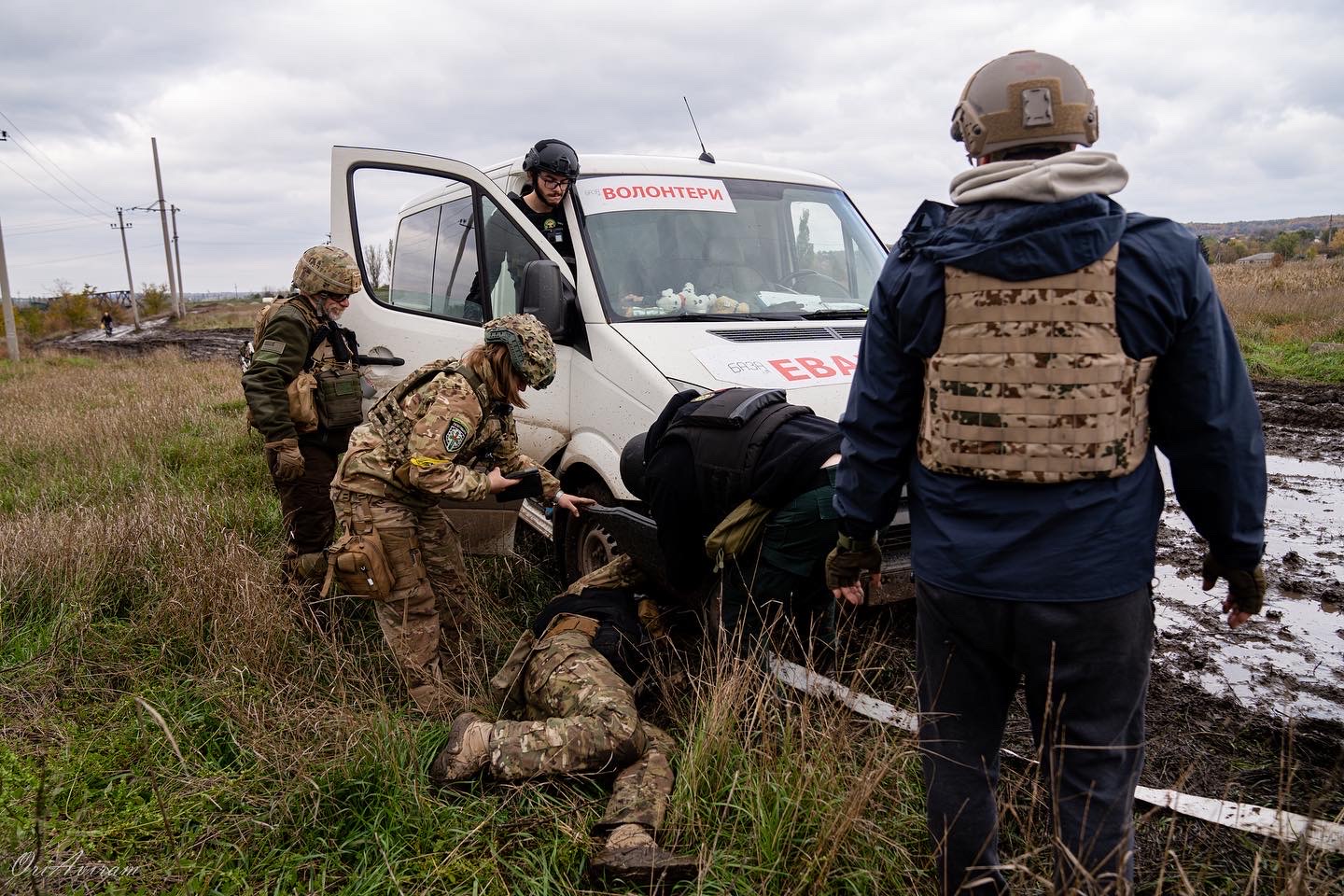
Base UA team members get stuck in eastern Bakhmut.
© Ori Aviram
Mark is 13 years old. Circles under his eyes as big as apples and as dark as the night run through his face. The boy is pale. Thin. He barely speaks. When spoken to, his answers are brief. Only the most important things. Efficiency. That’s all Mark can manage to get out.
We meet Mark in an abandoned hotel in downtown Bakhmut. A volunteer from one of the city’s three Humanitarian Centers was able to get in touch with the family. Shards of glass lie at the entrance to the hotel. The blast wave from a nearby impact must have shattered the door and window panes of the building. The entrance hall is deserted, we call out, but no one answers. The hotel seems to be empty, but just as we are about to leave again, we see a man running into the hallway from the back room. We follow him. He shows us the way to the family. Clothes are lying everywhere in the room, plastic bags full of food have been squeezed into the corners. It is dark. The sun’s rays, forcing their way through the windows covered by blankets, highlight the dust motes in the air. A light show of glitter and sadness.
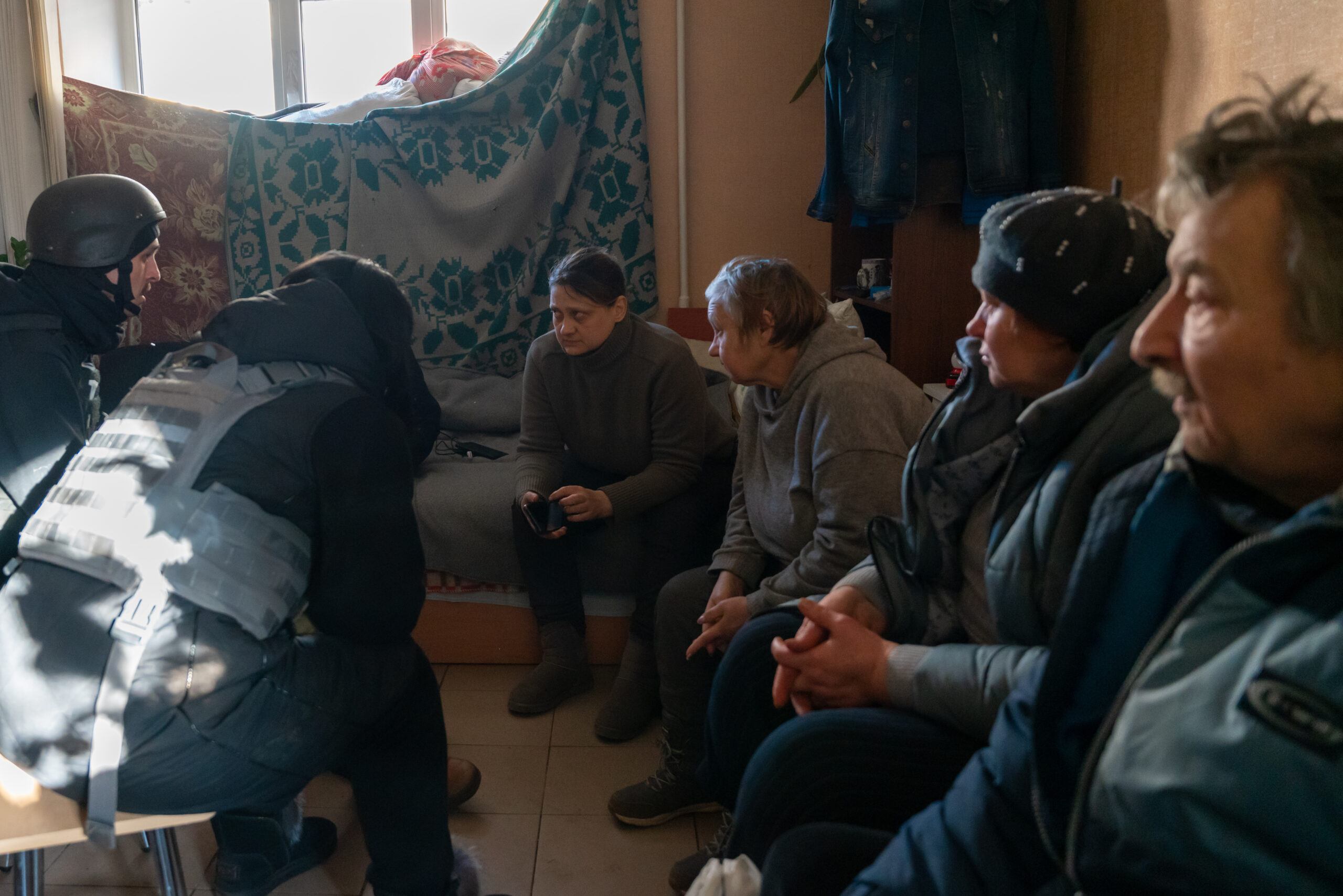
People sitting in the hotel waiting for their evacuation.
© Madison Tuff
The family sits on a bed against the wall. Their eyes are blank, their gazes petrified. Next to the bed is a sofa, on which more people are waiting to be taken out of Bakhmut. They have all endured months of shelling, fear and a risky escape.
Our team leader Dima sits down with the people, talks to them. Where should we take them? What is their plan? Do they have friends? Relatives? Dima’s voice is subdued. Respectful, but firm. He shakes hands with the boy, introduces himself. Explains who we are and what we do. Mark’s expression hardly changes. He knows what is about to come.
A goodbye.
His mother pulls him into her arms. He buries his face in her shoulder, sobs. He trembles as his mother takes his face in her hands. She comes very close, the tips of their noses touching as she whispers things to him incessantly.
His mother will stay in Bakhmut. Only Mark and his grandmother come with us. She wants to go to find her husband, Mark’s father. They were planning to escape together, the car was packed, then they were supposed to leave. But somehow they got separated. They don’t know where the father is.
We carry the few remaining belongings of Mark into our armored van. The rest of the passengers’ luggage also fits effortlessly into the car. The ride is quiet. Hardly anyone speaks a word.
Mark and his grandmother are staying with family acquaintances in Kramatorsk for the time being.
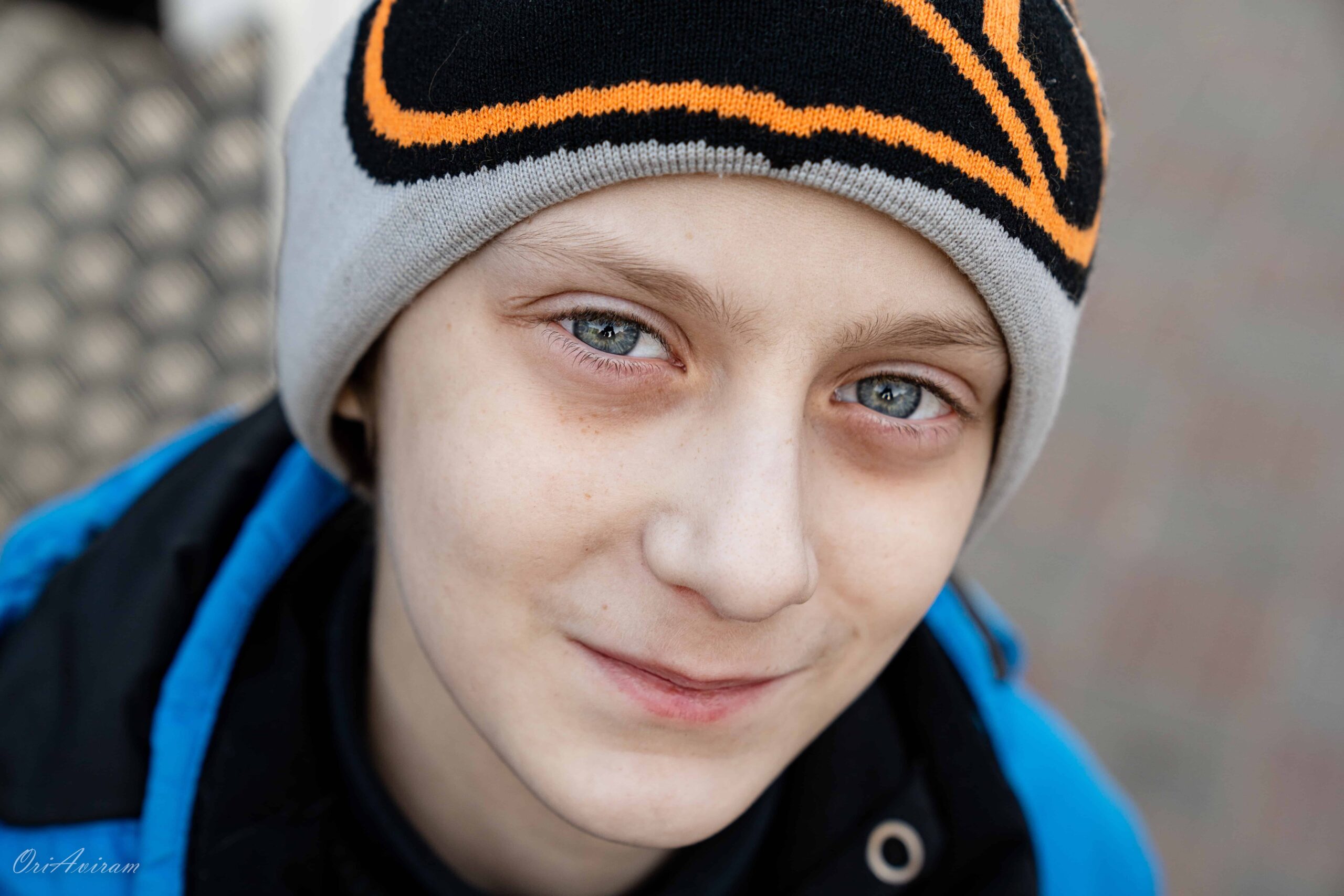
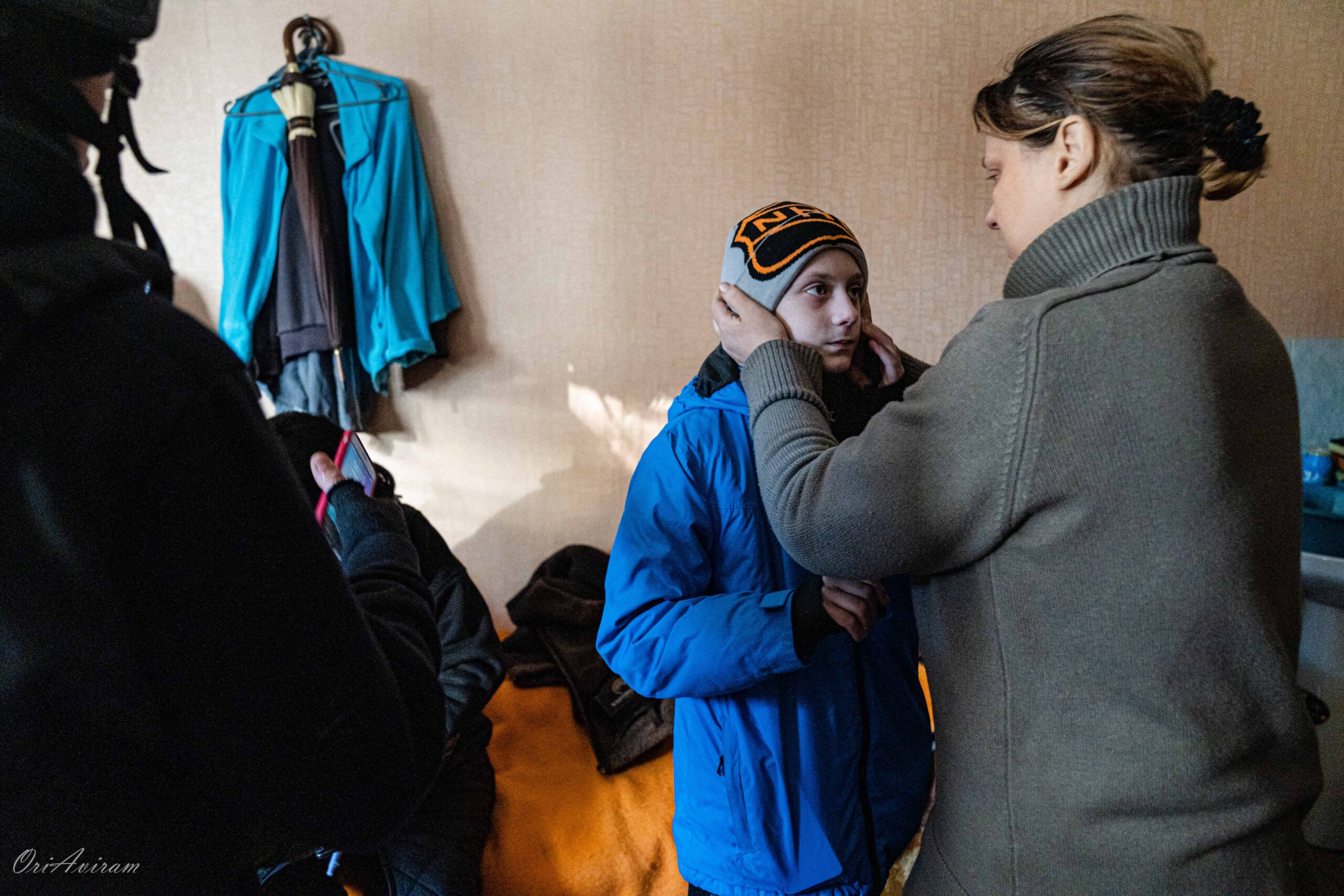
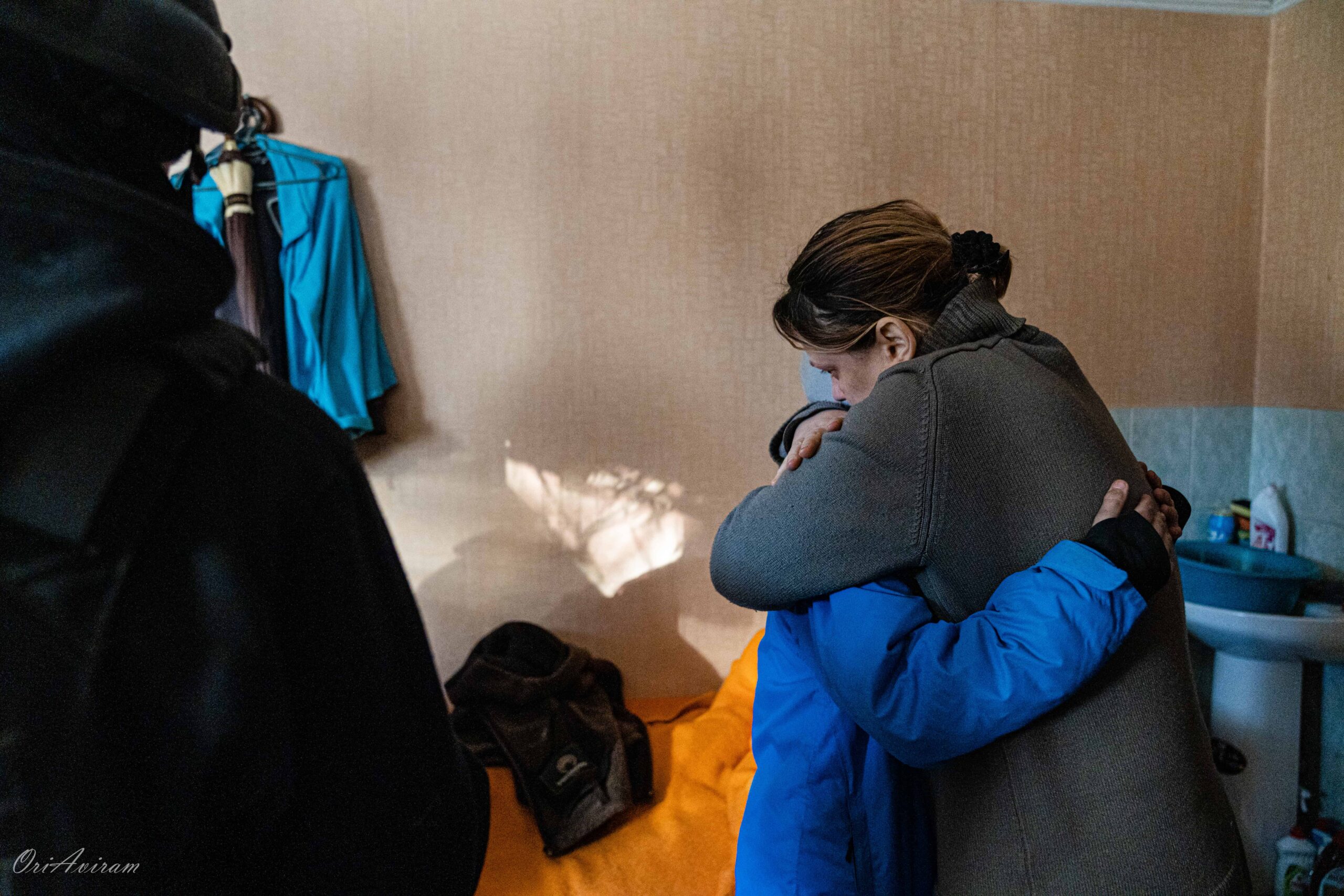
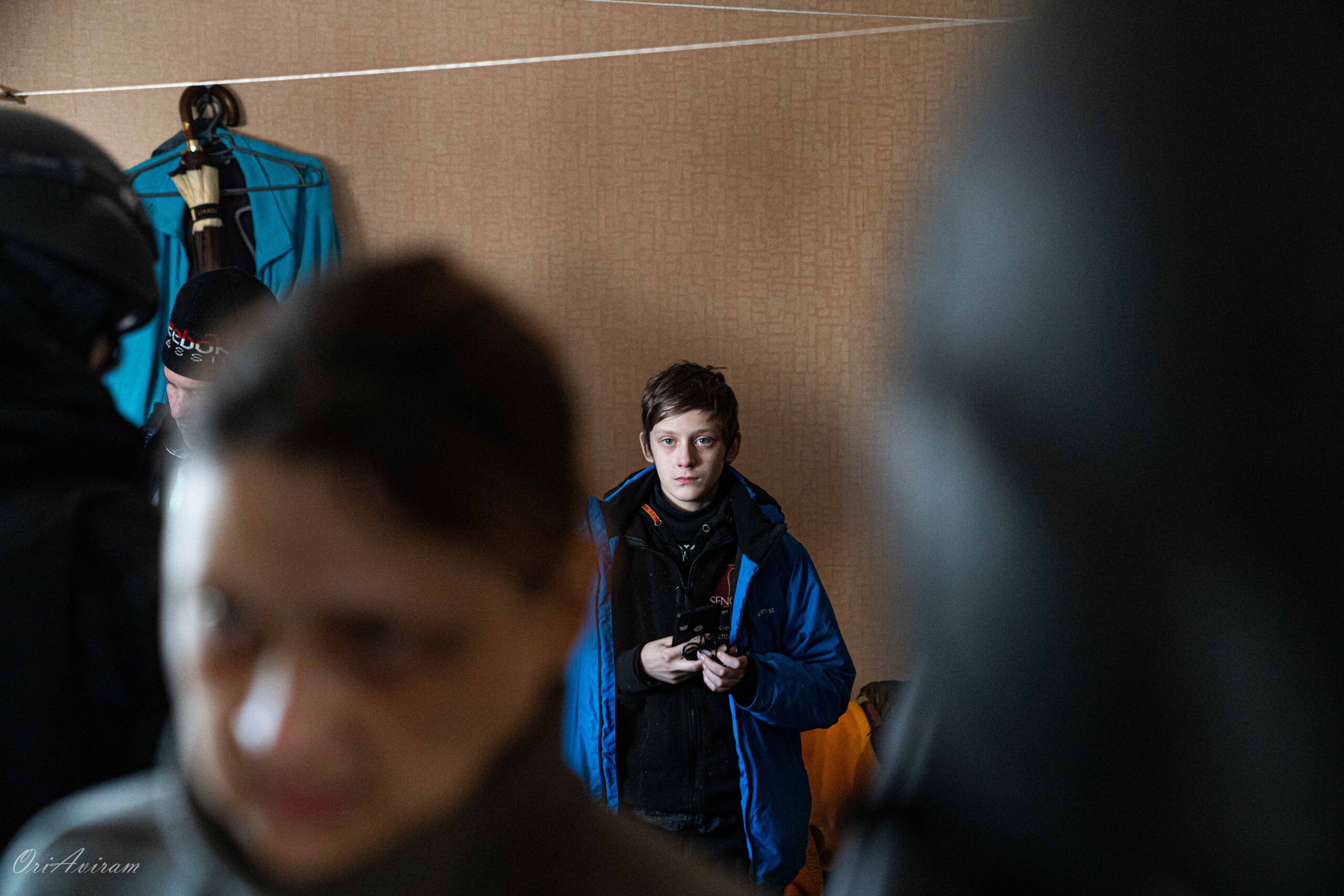
Hopefully a short term goodbye: Mark and his mother.
© Ori Aviram
Update
Two days later, our team member Madison met Mark and his mother on the train to Kyiv.
We are incredibly happy that she made it out of Bakhmut. Unfortunately, we have not heard from the father.
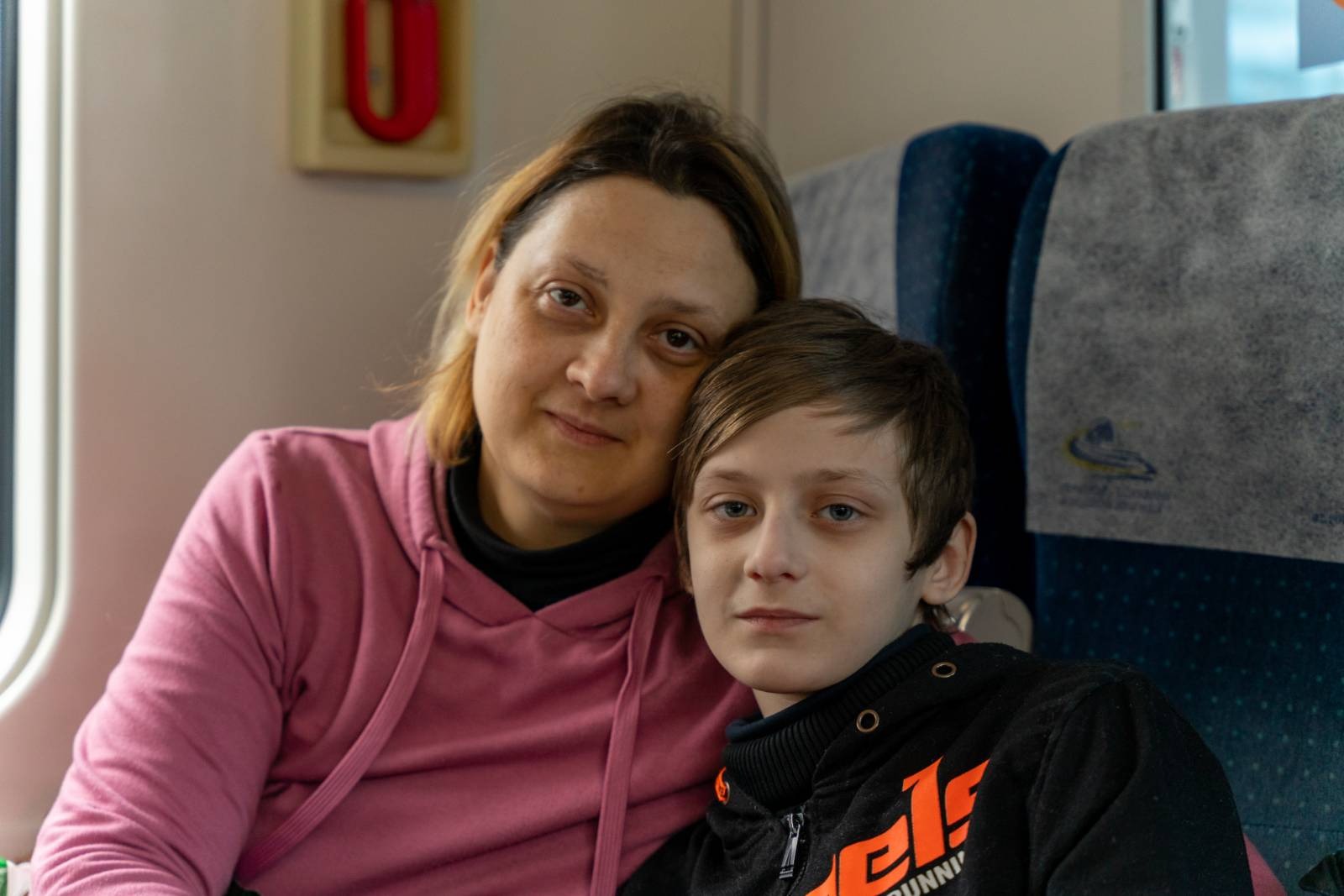
Mark and his mother in the train to Kyiv.
© Madison Tuff
